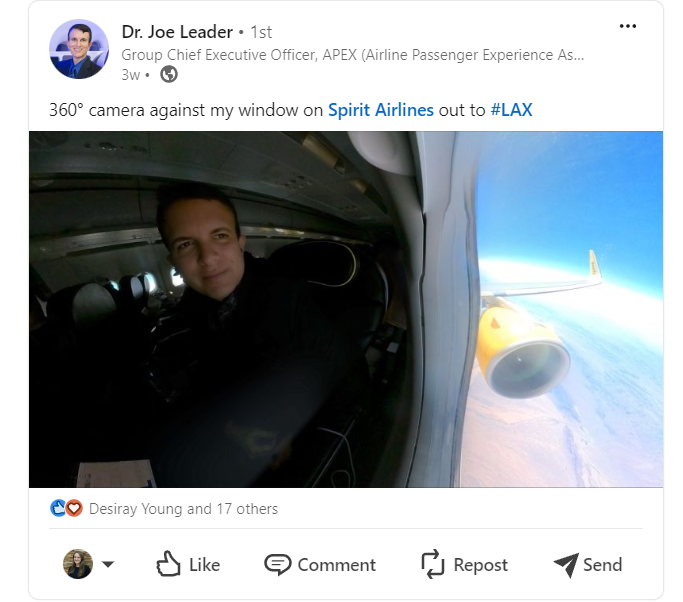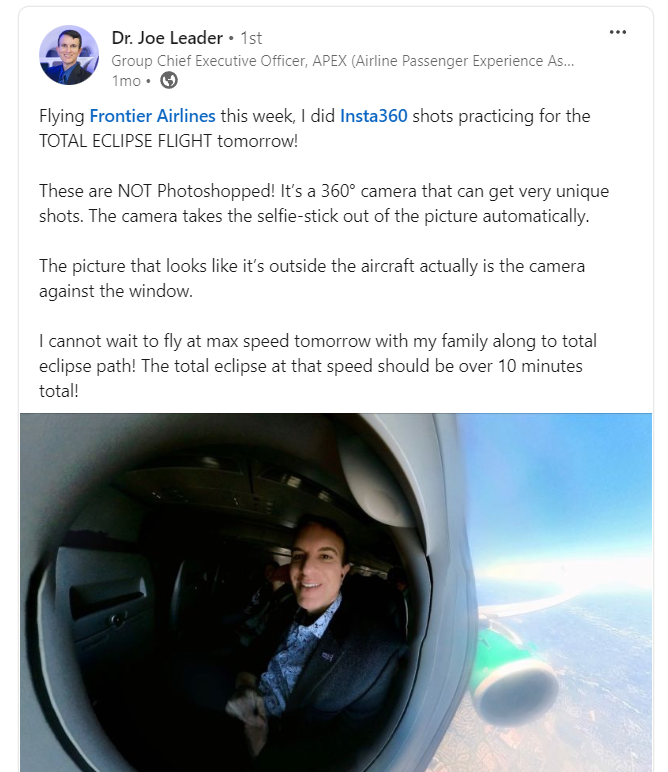Dr. Joe Leader Highlights Era of Change for ULCCs in the US
Share

I love ultra-low-cost carriers (ULCCs) Spirit Airlines and Frontier Airlines for the incredible value that they provide, but the value provided by both got exponentially better last week. After change fee waivers by US airlines across the majority of their fares, passengers have unfortunately been conditioned to avoid these carriers due to the perceived risks and inconveniences associated with their travel plans. This perception has hindered their ability to attract some normal and higher-value travelers. However, the strategic move to eradicate change fees promises to reshape the landscape of budget air travel in the United States. In my professional opinion, the evolution will lead to a long-term win for both airlines.
Spirit and Frontier have unfortunately long struggled with the stigma that booking with a ULCC could lead to complications and unexpected costs, especially when travel plans change. This negative conditioning has been a substantial obstacle, particularly as mid-tier and higher-value travelers return to the skies. These travelers, who prioritize flexibility and reliability, have sometimes shied away from ULCCs, opting instead for airlines with more accommodating policies.
The elimination of change fees marks a pivotal shift for ULCCs. Spirit removed all change fees. Frontier kept them only for “basic economy” equivalent fares. By removing these fees, Spirit and Frontier are positioned to capture a broader market of passengers who value flexibility but also seek competitive fares. This change means passengers can book flights at low rates without the fear of incurring significant penalties if their plans need to change. This newfound flexibility encourages more travelers to consider ULCCs, knowing they can adapt their itineraries as needed without financial repercussions.


As ULCCs embrace this policy change, they are likely to see an increase in booking volume. Passengers will no longer hesitate to take advantage of great rates, confident in the knowledge that they can alter their plans without incurring hefty fees. This move not only boosts immediate bookings but also fosters long-term customer loyalty. Passengers will feel more secure in their choice, knowing they are not locked into rigid plans.
While I have status with every one of the U.S. three airlines, I tend to frequently book both Spirit and Frontier for the value that they provide. The Big Front seat on Spirit provides first-class work space for my business travel at a mainline economy-class price. With status matches from both ULCC airlines, I have tended to book Spirit when my plans are more certain and Frontier when my plans may change. Frontier allowed a refund for all funds for my entire family 24-hours before my travel. With my status, Spirit previously required for a change to be placed immediately into another ticket. Now, passengers will more universally have the benefit of flexibility.
The strategy of abolishing change fees will result in both airlines accumulating substantial future credits. When passengers cancel or change their flights, the funds do not vanish but instead remain with the airline as a credit for future use. This practice effectively banks money within the airline, creating a new form of currency. This system benefits both the airlines and the passengers. Airlines secure future revenue, while passengers retain the flexibility to travel later without financial loss.
The elimination of change fees also promises to bolster ancillary revenue for Frontier and Spirit by drawing more customers into their respective loyalty programs.
Dr. Joe Leader, APEX
The elimination of change fees also promises to bolster ancillary revenue for Frontier and Spirit by drawing more customers into their respective loyalty programs. As passengers become more comfortable booking with ULCCs, they are likely to engage more deeply with these airlines’ loyalty offerings. This engagement not only increases repeat business but also encourages the purchase of additional services and upgrades, further enhancing revenue streams.
Spirit and Frontier’s decision to purge change fees reflects a broader trend in the airline industry. Airlines are increasingly recognizing the value of flexibility and customer-centric policies. By allowing customers to “bank” their money with the airline, these carriers ensure a steady stream of future business. This approach not only improves cash flow but also strengthens customer relationships. Passengers appreciate the ability to make future travel plans without the immediate pressure of financial commitment.
Yes, the calculated removal of change fees by Frontier and Spirit represents a significant evolution in the ULCC model. This move addresses long-standing customer concerns, attracts a broader range of travelers, and ensures financial stability through future travel credits. As these airlines continue to innovate and adapt, they will redefine the landscape of budget air travel, offering unparalleled value and flexibility to millions of passengers. The future looks promising for ULCCs, as they embrace change and meet the evolving needs of today’s travelers to maximize customer experience.


